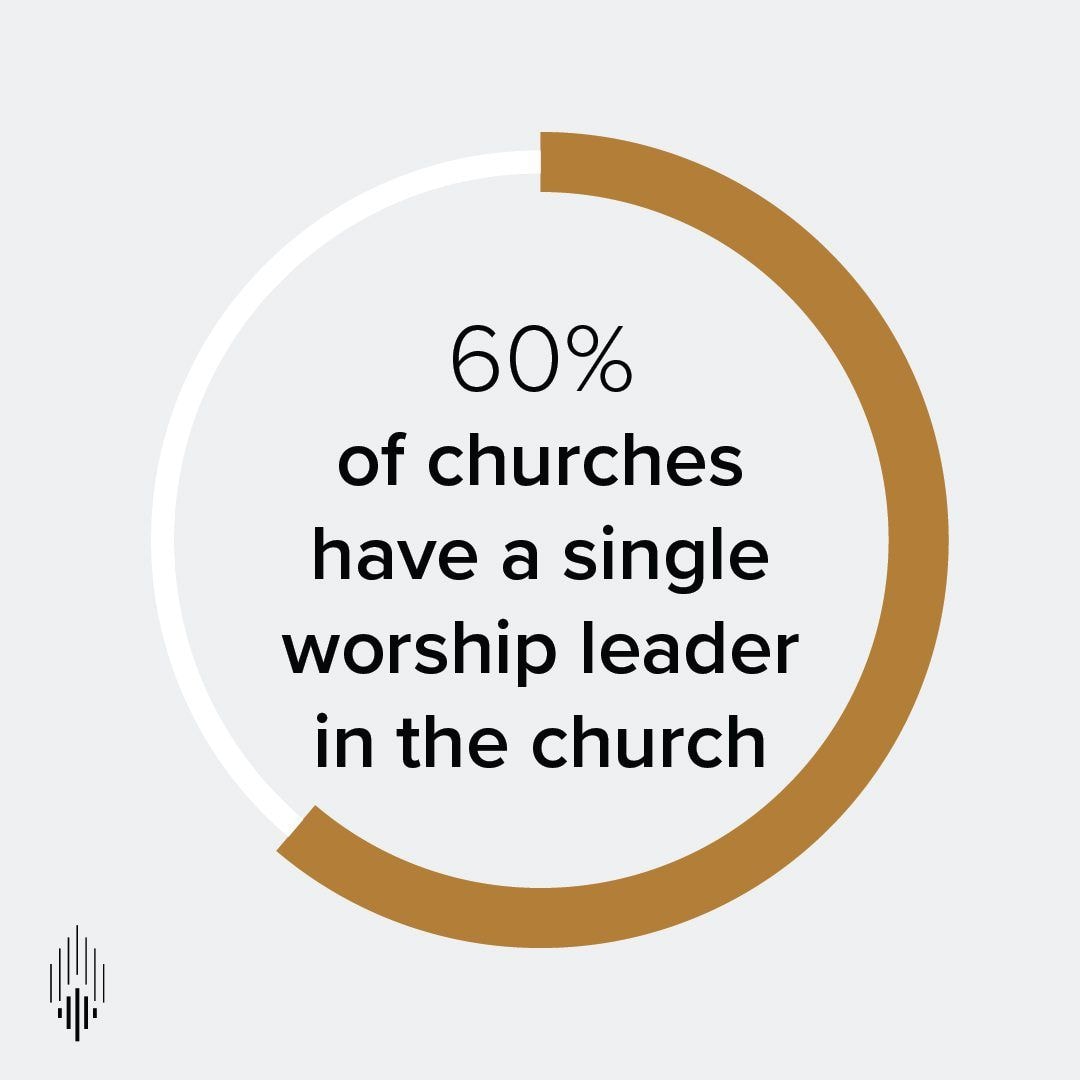Mastering Worship Team Management: 5 Keys to Success
Here’s the thing: managing a worship team can be hard.
In today’s churches, worship teams play a vital role in creating meaningful services. However, managing a worship team can be challenging.
Effective team management can lead to a more joyful and engaging worship experience for both team members and the congregation. When a worship team is well-organized and connected, they can inspire others and enhance the spiritual atmosphere.
In this podcast, we will explore five essential keys to mastering worship team management. By focusing on these areas, worship leaders can build a team that thrives and positively impacts their church community. Whether you are a seasoned leader or just starting, these principles can help you create a successful worship team that honors and uplifts everyone involved.
Ready to jump in? Let’s go.
Managing a Worship Team

First up, let’s cover everything you need to know about managing a worship team. Chances are that if you’re reading this, you have some level of responsibility over your church’s worship team. Maybe you’re a lead pastor, worship leader, or just someone on in the band. Whatever your role, it’s important to know what you’re facing so you can best solve the problems.
In this section, we’ll cover the basics of worship team management, the reasons why you should care, and what challenges you might face. Let’s get into it.
Basics of Worship Team Management
Managing a worship team requires a clear understanding of roles and responsibilities. An organized worship leader or worship pastor should set the vision for the worship ministry. This includes selecting worship songs that fit the church’s style and message.
The worship band, made up of musicians and vocalists, should practice regularly to ensure they can perform well during services. Good communication is essential; leaders should hold regular meetings to discuss upcoming services, share feedback, and encourage team members.
By fostering an atmosphere of support and collaboration, the worship team can work together effectively.
Importance of Worship Team Management
Effective worship team management is crucial for any local church. When the worship ministry is well-managed, it creates a space for the congregation to worship God wholeheartedly. A strong worship band can lead the church in powerful worship music, drawing people closer to their faith.
Additionally, a well-organized worship team can enhance the overall experience of Sunday services, making them more engaging and uplifting for everyone involved. When the team feels valued and prepared, it reflects in their worship leading, inspiring the congregation to participate fully in worship.
Challenges in Worship Team Management
Despite the benefits, managing a worship team comes with its challenges. One common issue is coordinating schedules among team members, which can be difficult given busy lives. Additionally, differing musical tastes and opinions on worship songs can lead to conflicts. It’s important for worship leaders to address these differences respectfully and find common ground.
Another challenge is ensuring that all team members feel included and appreciated. Leaders should make an effort to recognize the unique talents and contributions of each member.
By facing these challenges head-on, worship leaders can build a stronger, more cohesive worship team that enhances the church’s worship experience.
Top 5 Keys for Worship Team Management Success

And that’s everything you need to know about worship team management! Now, let’s go over our list of the top 5 keys for succeeding in managing a worship team. These tips range from how to build your team culture to how you can advance your planning and organization.
1. Vision and Purpose
Having a clear vision and purpose is essential for any worship team. It guides every decision and action the team takes. A worship leader or music director should start by defining the mission of the worship ministry. This mission should reflect the goals of the church plant and how the team can contribute to its success.
According to Lifeway Research, 60% of churches have a single worship leader. That means that for a lot of you, one person is in charge of establishing a clear vision.

Once the vision is established, it is important to communicate it to each team member. When everyone understands the purpose, they are more likely to work together effectively. Regular meetings can help reinforce this vision and allow team members to share their thoughts and ideas.
A strong vision also helps in choosing the right worship songs that align with the church’s message. When team members feel connected to a common purpose, they are more motivated and passionate about their roles. This shared understanding creates a supportive atmosphere where everyone can thrive.
Ultimately, a clear vision and purpose will lead to a more impactful worship experience, helping the congregation connect with God during services.
2. Leadership and Communication
Strong leadership and communication are vital for a successful worship team. A good leader, like a worship pastor or music director, sets the tone and direction for the group. They help the team focus on its goals and encourage spiritual growth among team members. Clear communication prevents misunderstandings that can lead to conflicts, which can waste everyone’s time.
Leaders should hold regular meetings to discuss upcoming services, share feedback, and listen to the ideas of team members. This open dialogue fosters a sense of belonging and shows that everyone’s opinion matters. However, don’t hold meetings too often or for too long, or the band will grow to resent them. Only focus on what matters and be reasonable so you aren’t wasting everyone’s time.
When conflicts arise, it is important for leaders to address them quickly and fairly. Practicing conflict resolution techniques helps maintain a positive environment where team members feel safe to express their thoughts.
By being approachable and supportive, leaders can build trust within the team. This trust allows for honest conversations and collaboration, ultimately leading to better performances during worship services. When the worship team feels unified and guided by strong leadership, they are more effective in leading the congregation in worship. This creates a meaningful experience for everyone involved, enhancing the overall impact of the worship ministry.
3. Team Culture

Building a cohesive team culture is essential for a successful worship team. When team members feel connected and supported, they can work together more effectively. A strong team culture encourages collaboration, trust, and open communication, which leads to a more joyful worship experience.
Here are some simple ways to build a cohesive team culture:
- Encourage Team Bonding: Organize fun activities outside of regular practices, such as potlucks, game nights, or outings. This helps team members get to know each other better and strengthens relationships.
- Celebrate Successes: Acknowledge and celebrate achievements, both big and small. Whether it’s a successful service or personal milestones, recognition fosters a positive environment.
- Create a Supportive Atmosphere: Encourage team members to share their struggles and successes. A supportive environment allows everyone to feel safe and valued.
- Promote Team Goals: Establish shared goals that everyone can work toward. This gives the team a common purpose and encourages collaboration.
When a worship team has a cohesive culture, it enhances their ability to lead worship effectively. A united team can inspire the congregation to engage in worship and create a meaningful experience for everyone.
By focusing on building strong relationships, the worship ministry can thrive and grow together.
4. Development and Training
Skills development and training are crucial for a successful worship team. When team members continuously improve their musical abilities and leadership skills, they become more effective in their roles. A worship leader or music director should prioritize regular training to help each member grow and thrive.
One way to promote skill development is by offering workshops and practice sessions. These sessions can focus on specific areas, such as vocal techniques, instrumental skills, or songwriting. Bringing in experienced musicians to teach can provide valuable insights and inspire team members to reach their full potential.
Encouraging mentorship within the team is another effective strategy. Pairing more experienced musicians with those who are newer allows for knowledge sharing and personal growth. This kind of support builds confidence and fosters a sense of community among team members.
Additionally, staying updated on the latest trends in worship music is essential. This can involve exploring new worship songs or experimenting with different styles. By exposing the team to diverse music, they can expand their skills and creativity.
When team members feel that they are growing, they become more engaged and passionate about their roles. Ultimately, ongoing skills development and training contribute to a stronger, more dynamic worship team that can lead the congregation in powerful worship experiences.
5. Planning and Organization
Planning and organization are essential for a successful worship team. A well-structured worship ministry allows the team to focus on leading the congregation in meaningful worship. Without proper planning, services can feel chaotic, which may hinder the worship experience.
To ensure effective planning, leaders should start by creating a detailed schedule for rehearsals, services, and special events. Sharing this schedule with the team helps everyone know when and where to be, showing respect for their time.
Another important aspect is selecting worship songs in advance. This allows the worship band enough time to practice and become familiar with the music. Leaders should choose songs that align with the themes of upcoming sermons to enhance the overall message.
Additionally, having a clear plan for each service is vital. This includes knowing who will lead specific songs, when transitions will occur, and any special elements like prayer or testimonies.
Here are a few key points for effective planning and organization:
- Create and share a schedule for rehearsals and services.
- Select worship songs in advance to allow for adequate practice.
- Outline each service to clarify roles and transitions.
- Be flexible and ready to adapt as needed.
When a worship team is well-planned and organized, they can create a powerful worship experience that connects the congregation to God.
Leading Worship Teams

In conclusion, mastering worship team management is essential for creating a vibrant worship experience in any church. By focusing on clear vision and purpose, strong leadership and communication, a cohesive team culture, ongoing skills development, and effective planning and organization, worship leaders can build a thriving ministry.
Each key plays a vital role in ensuring that team members feel valued and engaged, which ultimately enhances the congregation’s worship experience. When a worship team works together seamlessly, it creates a space for the church community to connect with God through worship music and heartfelt praise. As worship leaders implement these principles, they will not only empower their teams but also inspire their congregations to worship God more deeply.
By investing in the growth and unity of the worship team, leaders can make a lasting impact on their local church and contribute to a flourishing spiritual environment.

